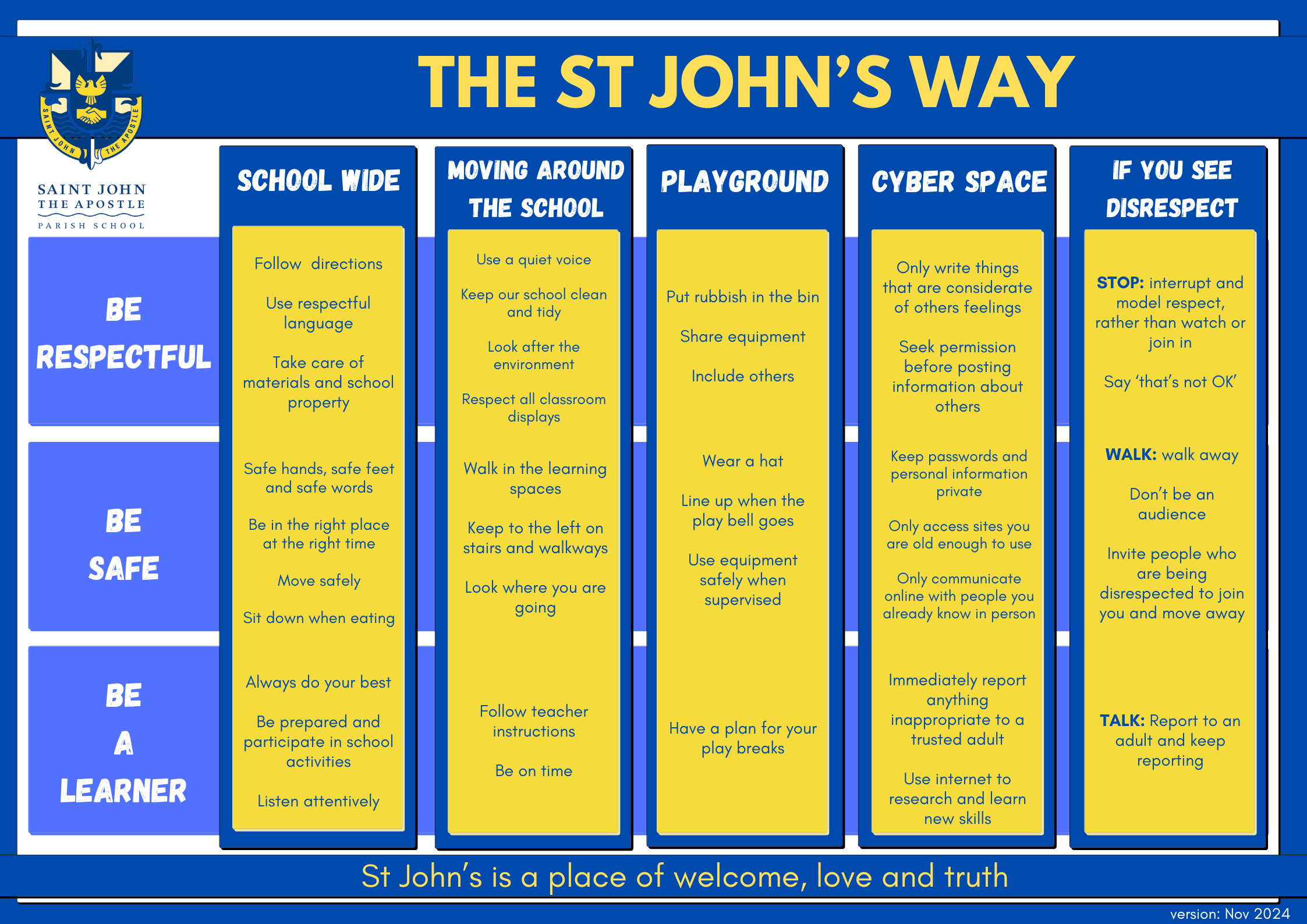
We know your child's learning needs are unique to them, and we know they will learn in many different ways.
At St John the Apostle Parish School, staff and students are encouraged to be committed to lifelong learning that is relevant, enriched and passionate, and which uses the best of learning energies for everybody.
This supports the understanding that learning is an individual, as well as a shared experience and that ultimately, the need for learning is the whole reason 'school' as we now know it came into existence.
Learning to be Literate: Learning to Read; Reading to Learn
We have whole school approaches in Literacy to ensure consistency in teaching practice and to ensure every child receives high-quality instruction.
Our approach is evidence-based with a focus on all elements of reading, writing and oral language.
Explicit and high impact teaching is core to the efficient delivery of skills to learn and practice.
Our teaching of reading is based on a phonics approach utilising Playberry Laser. All teachers have been trained to effectively deliver this program.
Intervention is provided for students requiring additional support - both in class (Tier 2) and 1-1 (Tier 3) where required. We have trained ESO staff who work closely with the teachers and children.
Like literacy, these lessons are structured to ensure high impact teaching. This includes daily reviews, warm-ups, explicit teaching of concepts, followed by opportunities for practice and transfer knowledge and understanding.
Learning is differentiated to provide targeted learning for students.
Intervention and additional support (Tier 2) is provided in class for small groups during mini-lessons.
Our behaviour education is designed to support students to develop both the capacity and the willingness to take personal responsibility for their actions and behaviour. This involves making sure that our expectations of students are clearly stated to all concerned as well as working closely with parents, caregivers and students to solve issues if and when they arise.
